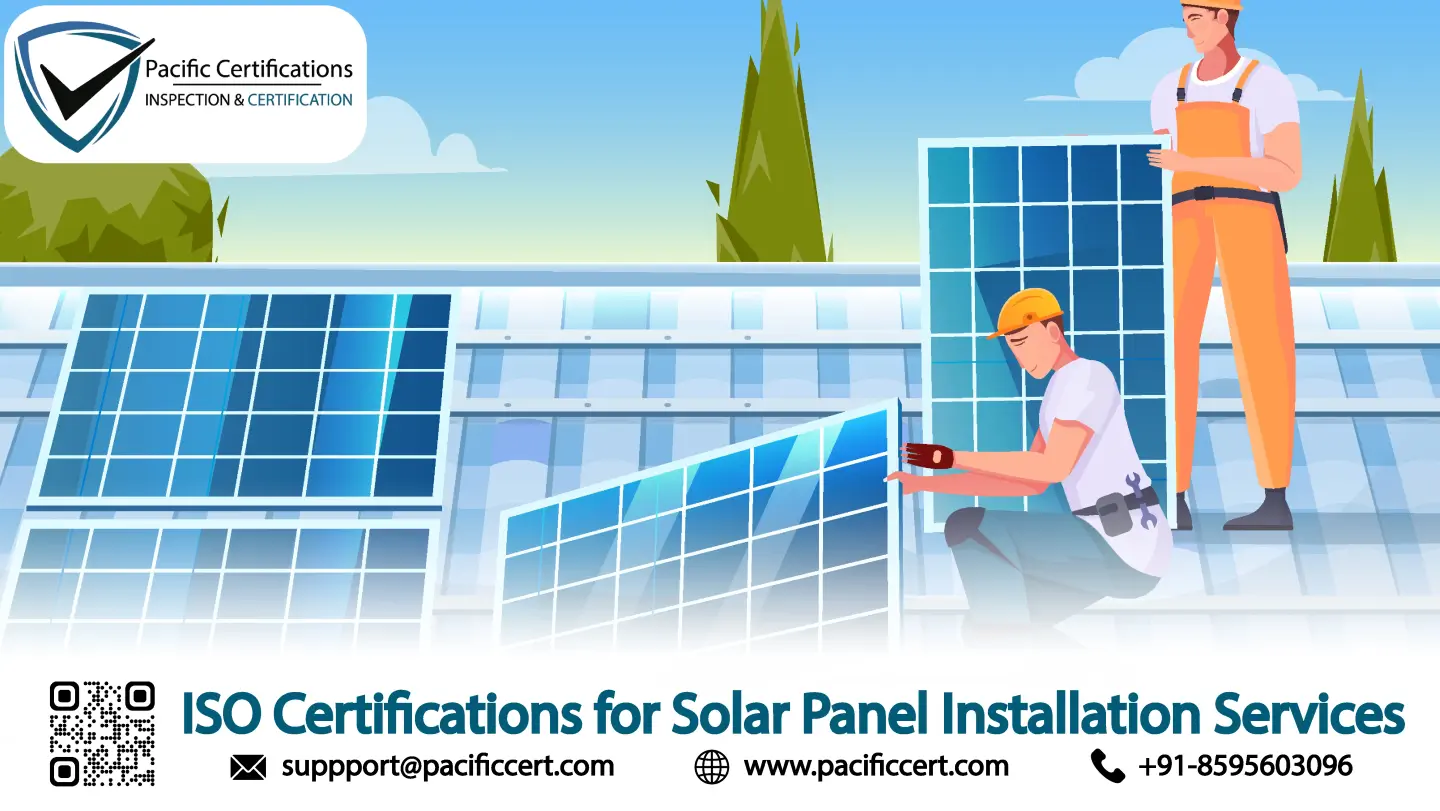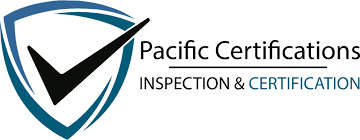ISO Certifications for Solar Panel Installation Services, Requirements and Benefits

Introduction
Solar panel installation services are at the heart of the global transition to clean energy. As governments, corporations, and households continue to adopt solar energy, installation providers face increasing expectations for quality, safety, and environmental responsibility. ISO certifications provide the framework to meet these expectations while ensuring operational efficiency and competitiveness. For solar companies, certification is more than a compliance measure; it is a way to demonstrate trustworthiness, secure contracts, and position themselves in a rapidly expanding renewable energy market.
Sustainable energy projects demand not only technical expertise but also internationally recognized systems that assure quality, safety, and compliance at every stage.
Applicable ISO standards to Solar Panel Installation companies
Below are the applicable ISO standards for Solar Panel Installation services:
ISO 9001:2015 - Quality Management System (QMS)
ISO 9001 sets the framework for a quality management system, ensuring that a company's processes meet customer and regulatory requirements.
ISO 14001:2015 - Environmental Management System (EMS):
ISO 14001 focuses on environmental management and helps organizations reduce their environmental impact. Solar Panel Installation can benefit use this standard for demonstrating their commitment to sustainability and environmental responsibility.
ISO 45001:2018 - Occupational Health and Safety Management System (OHSMS):
Safety is paramount in the solar panel installation industry. ISO 45001 provides a framework for managing occupational health and safety risks, ensuring a safer working environment for employees and contractors.
ISO 27001:2022 - Information Security Management System (ISMS):
ISO 27001 helps in establishing robust information security controls and practices to protect data and information assets.
ISO 50001:2018 - Energy Management System (EnMS):
ISO 50001 assists in managing and improving energy performance, reducing energy costs, and contributing to sustainability goals.
ISO 19600:2014 - Compliance Management System (CMS):
Ensuring compliance with legal and regulatory requirements is essential for Solar Panel Installation companies.
ISO 17025:2017 - General requirements for the competence of testing and calibration laboratories:
For entities involved in testing or calibration of solar panels or related equipment, ISO 17025 ensures the competence and quality of their laboratory services.
Product Certification (CE Marking):
If your Solar Panel Installation company manufactures or sells solar panels, CE marking certification can be essential for demonstrating compliance with European Union product safety standards.
Click here to find out more applicable standards to your industry
To pursue ISO certifications, Solar Panel Installation providers can reach out to us at Pacific Certifications at [email protected], we can assist in the certification process, including auditing and assessment, to ensure compliance with the respective ISO standards.
What are the requirements of ISO Certifications for Solar Panel Installation Industry?
To achieve ISO certification, solar panel service providers must implement structured systems that address quality, safety, environment, and performance, supported by documented processes and regular evaluations. Below are generic and standard specific requirements:
Establish policies and objectives for quality, safety, and sustainability, with clear leadership commitment and governance responsibilities across all levels.
Define the scope of services, including design, procurement, installation, and maintenance, while identifying applicable regulations and customer requirements.
Conduct risk assessments and hazard identification covering electrical safety, working at heights, fire hazards, and environmental impacts linked to solar projects.
Develop documented operating procedures for installation, inspection, testing, preventive maintenance, and safe disposal of solar components.
Ensure training and competence of staff through structured programs on electrical safety, PPE usage, first-aid, and environmental awareness.
Maintain documented records of compliance, audits, inspections, and corrective actions to provide evidence of operational control and improvement.
Implement environmental measures to minimize waste, manage chemical substances, and reduce the carbon footprint of installation activities.
Carry out internal audits and management reviews at planned intervals to confirm system effectiveness and identify opportunities for continual improvement.
Specific Requirements of key ISO standards:
ISO 9001: Quality Management System (QMS) Requirements
Establish a quality management system with documented procedures.
Focus on customer satisfaction and continuous improvement.
Implement a process-based approach to operations.
Conduct regular internal audits and management reviews.
Monitor, measure, and analyze key performance indicators.
ISO 14001: Environmental Management System (EMS) Requirements
Identify and control environmental impacts from operations.
Implement sustainable practices and reduce waste.
Ensure compliance with environmental regulations.
Set environmental objectives and monitor performance.
Conduct periodic environmental audits and reviews.
ISO 45001: Occupational Health and Safety (OH&S) Requirements
Develop and implement a health and safety management system.
Identify and mitigate workplace hazards and risks.
Ensure compliance with occupational safety regulations.
Promote worker participation in health and safety initiatives.
Regularly review and improve safety measures through audits and incident reporting.
ISO 50001: Energy Management System Requirements
Establish energy management policies and objectives.
Monitor and improve energy use efficiency.
Implement energy-saving practices across operations.
Ensure compliance with relevant energy regulations.
Perform energy audits to track progress and identify improvement areas.
Tip: Solar companies should start with ISO 9001 and ISO 45001 to strengthen their quality and safety foundations, and then integrate ISO 14001 or ISO 50001 to demonstrate environmental leadership and energy efficiency, especially when targeting large-scale or government-backed projects.
Certification for your company, contact us today at [email protected] .
What are the benefits of ISO Certifications for Solar Panel Installation Businesses?
ISO certifications offer numerous benefits to Solar Panel businesses, below are the key benefits:
ISO 9001 certification helps Solar Panel Installation providers to improve the quality of their products and services.
Solar companies can reduce their environmental footprint, comply with regulations with ISO 14001 certification.
ISO 45001 certification ensures a safer working environment, reducing the risk of accidents and injuries for employees.
ISO 27001 certification helps protect sensitive data and ensures the confidentiality.
ISO 50001 certification assists in optimizing energy use and reducing energy costs.
ISO certifications demonstrate compliance with international standards, regulatory requirements, and industry best practices.
Implementing ISO standards often leads to streamlined and standardized processes.
ISO certifications can open up new markets and customers.
ISO standards require companies to assess and mitigate risks, helping them proactively manage potential issues and crises.
ISO certifications can enhance a company's reputation and credibility.
ISO certifications provide customers with confidence in the company's ability to meet their requirements and expectations consistently.
The solar industry remains the fastest-growing segment of renewable energy. Global photovoltaic capacity surpassed 1,600 GW in 2024 and is projected to reach 2,350 GW by 2027, according to the IEA. This rapid expansion is driving demand for reliable and certified installation services. In 2023, the United States added over 30 GW of new solar capacity, while India crossed 70 GW installed capacity, placing both among the world’s largest solar markets.
Clients and regulators now expect verifiable assurance of quality, safety, and sustainability. Studies indicate that companies certified to ISO 9001, 14001, and 45001 are significantly more successful in securing government-backed projects and large commercial contracts. Environmental concerns add to this momentum, with solar energy projected to help avoid 1.6 gigatons of CO₂ emissions annually by 2030. At the same time, digitalization and the rise of smart energy systems are increasing the relevance of ISO/IEC 27001, as cyberattacks on energy infrastructure continue to rise globally.
Conclusion
By meeting the requirements and reaping the benefits of ISO certifications, Solar Panel Installation companies can improve their operations and position themselves as leaders in their industry, fostering trust and long-term success.
Pacific Certifications is accredited by ABIS, in case you need support with ISO certification for your Solar Panel Installation business, please contact us at [email protected] or +91-8595603096.
Read More at: Blogs by Pacific Certifications

